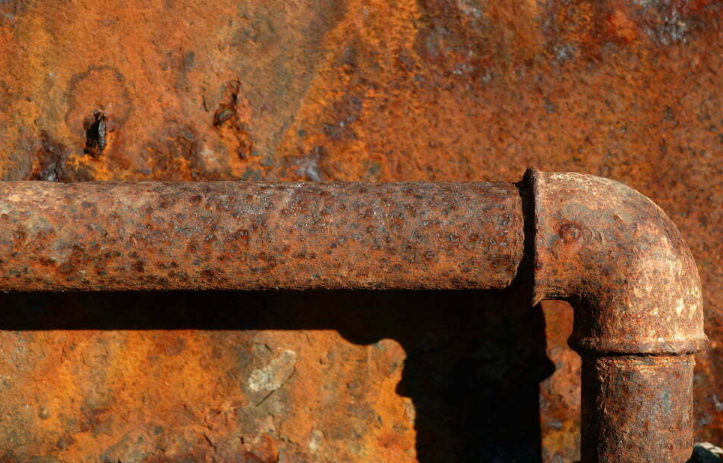Introduction
When it comes to metals, one of the most common concerns is whether they rust or corrode over time. Zinc, a widely used metal in various industries, is often associated with its ability to resist rusting. But does zinc rust or corrode in different environments? Understanding this crucial aspect of zinc’s behavior can help in its proper use, maintenance, and longevity. In this article, we will explore the science behind zinc corrosion, how to protect zinc from rust, and answer all your burning questions on whether zinc can actually rust or corrode.
What Is Zinc? An Overview
Before diving into whether zinc rusts or corrodes, let’s first understand what zinc is and its properties. Zinc is a chemical element and a type of metal commonly used in alloys such as brass and galvanized steel. It’s a versatile material widely employed in industrial and consumer products due to its unique ability to resist corrosion in various environments.
Zinc is often used as a protective coating for other metals, like iron and steel, to prevent rust and corrosion. This process is known as galvanization, and it’s one of the most common ways to increase a metal’s lifespan in outdoor or harsh environments.
Does Zinc Rust?
The Chemical Process Behind Rusting
Rusting refers to the formation of iron oxide when iron or steel reacts with oxygen and moisture over time. Since zinc is not iron, it doesn’t rust in the traditional sense. Instead, zinc undergoes a different form of corrosion. The metal does not develop the reddish-brown flakes that are typically associated with rust. However, zinc can still deteriorate, but it experiences a process known as oxidation.
Zinc Oxidation vs. Rusting
When zinc oxidizes, it forms a thin layer of zinc oxide. This is not the same as rust, which is flaky and compromises the structural integrity of metals. Zinc oxide forms a protective barrier that helps prevent further damage. While zinc doesn’t rust in the same way iron does, it is still susceptible to corrosion under certain conditions.
Does Zinc Corrode?
The Science of Zinc Corrosion
Zinc corrosion occurs when the metal reacts with certain environmental factors, including moisture, salts, acids, and alkalis. The corrosion of zinc typically forms a white or grayish deposit known as zinc carbonate. Unlike rust, which can weaken the metal’s structure, zinc’s corrosion creates a protective layer that actually helps prevent further degradation of the material.
Factors That Accelerate Zinc Corrosion
- Moisture: Prolonged exposure to moisture, especially in areas with high humidity, can speed up the corrosion process.
- Salt: In coastal areas, saltwater can significantly accelerate the breakdown of zinc coatings.
- Acidic Conditions: Highly acidic environments can cause zinc to corrode at a faster rate.
How to Prevent Zinc from Rusting or Corroding
Galvanization: The Best Defense Against Corrosion
One of the most effective ways to protect zinc from corrosion is through galvanization. This involves coating zinc onto other metals like steel. The process significantly improves the metal’s ability to resist both rusting and corrosion, making it ideal for outdoor applications like roofing, fencing, and automotive parts.
Protective Coatings for Zinc
Besides galvanization, there are other methods to protect zinc, including:
- Paint coatings: Applying paint or powder coating over zinc can act as an additional barrier to moisture and other corrosive elements.
- Zinc-rich coatings: These are specialized paints that contain a high amount of zinc powder, providing an extra layer of protection against corrosion.

Zinc in Different Environments: How Corrosion Varies
Zinc in Outdoor Environments
Zinc is commonly used in outdoor applications due to its corrosion resistance. However, exposure to harsh weather conditions, especially in coastal or industrial regions, can lead to zinc corrosion over time. Regular maintenance, such as cleaning and re-coating, can help prolong the lifespan of zinc products.
Zinc in Industrial Applications
In industrial settings, zinc is used in a variety of equipment and machinery. The protective nature of zinc helps prevent rust and corrosion in these environments, but the material should still be inspected periodically to ensure no excessive degradation occurs.
FAQ Section
Q1: Does zinc rust like iron?
No, zinc doesn’t rust like iron. Instead of forming rust (iron oxide), zinc forms a protective oxide layer when exposed to air and moisture, which prevents further degradation.
Q2: Can zinc be corroded?
Yes, while zinc doesn’t rust, it can still corrode under certain conditions such as exposure to moisture, salt, or acidic environments.
Q3: How can you prevent zinc corrosion?
Zinc corrosion can be prevented by applying coatings like paint, powder coating, or galvanization. Regular maintenance and avoiding harsh environments can also prolong zinc’s lifespan.
Q4: Does galvanized zinc rust?
Galvanized zinc has a protective zinc coating that prevents rust. However, over time, if the coating wears off, the underlying metal may be exposed to corrosion.
Q5: Is zinc corrosion harmful to the environment?
Zinc corrosion products, such as zinc carbonate, are generally not harmful to the environment. However, excessive zinc corrosion may require proper disposal or recycling of the material.
Q6: How long does zinc take to corrode?
The rate at which zinc corrodes depends on environmental factors. In typical outdoor environments, zinc can last for many years before noticeable corrosion occurs.
Conclusion
In conclusion, zinc is a highly versatile and durable metal that doesn’t rust in the traditional sense but can still experience corrosion under certain conditions. Its ability to form a protective oxide layer makes it resistant to many forms of damage, but it’s important to take steps to protect it, especially in harsh or industrial environments. With proper maintenance and protective coatings, zinc can maintain its functionality and appearance for many years.
Understanding how zinc behaves in different conditions and knowing how to prevent corrosion is crucial for anyone working with this material. Whether you’re building a home, working in an industrial setting, or simply curious about the science of metals, knowing whether zinc rusts or corrodes can help ensure the longevity and effectiveness of your projects.

